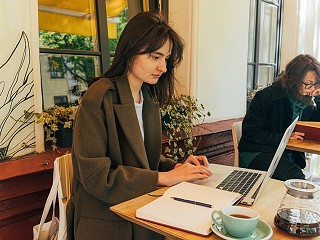Don’t Start Fixing Your Finances Just Yet

Most people give up on their New Years Resolutions by January 12. If you’re in that group, congratulations! You’re completely normal.
As I said last week ‘improving finances’ is the second most common resolution, and when you look at what the pay-off can be for doing that, it’s no wonder.
But the work involved is not always straightforward. There are some good bits, like planning what we’ll do with the money that’s currently going into debt repayment. But some of the work will bring up unpleasant emotions. And other bits are necessary, but tedious.
It’s no wonder we give up, or don’t even get started.
My suggestion this week is that you don’t get started until you’ve put a couple of small steps in place first.
Step 1: Pick a time and diary it
Fixing your finances will take time. Being clear about when exactly it will happen, and blocking out that time in your calendar or diary is a huge step towards it happening.
Just be realistic – you need to consider not only if you are free, but also how much energy you will have at the time you choose.
This small step can also make it clear why you gave up on your resolution – maybe your life is already full of other obligations and it’s really difficult to find a good time that isn’t already committed for something else.
Have some compassion for yourself if that is the case, and also know that your money is worth your time. Finding one or two 15-minute slots each week would be a great start, and could end up making a huge difference.
Step 2: Plan for (calm) enjoyment
One of the easiest ways to improve a task is to pair it with something you enjoy.
Put your financial work together with enjoyable music, and/or food, and/or drink. Just be mindful about whether your choices can be enjoyed alongside the work, or will distract you from it.
Another way to make the work more enjoyable is to find a body double.
This is a concept from the self-help world of ADHD. It is “a practice where the person with ADHD works on and completes frustrating tasks with another person.”
The body double may work on the task as well; they may actively help the person doing the task to resist distractions and stay focused, or they may simply be present, quietly working on their own task.Just having them there can help to lower anxiety, and to settle the mind into ‘work mode’.
Having these two steps in place helps many people get started on their work, which is often the hardest bit.
Even if you’ve given up on your resolutions already, it’s not too late. Put these steps in place and start again.
Photo by Antoni Shkraba:
